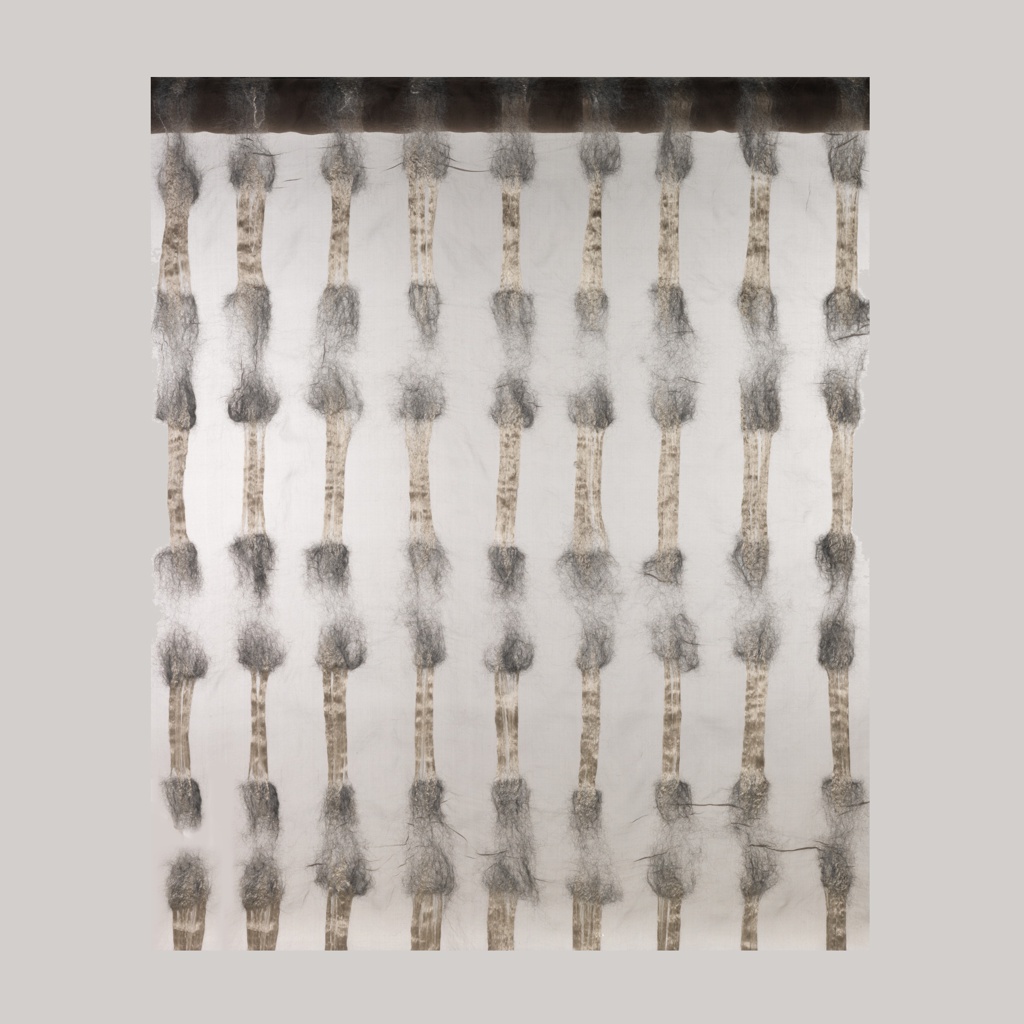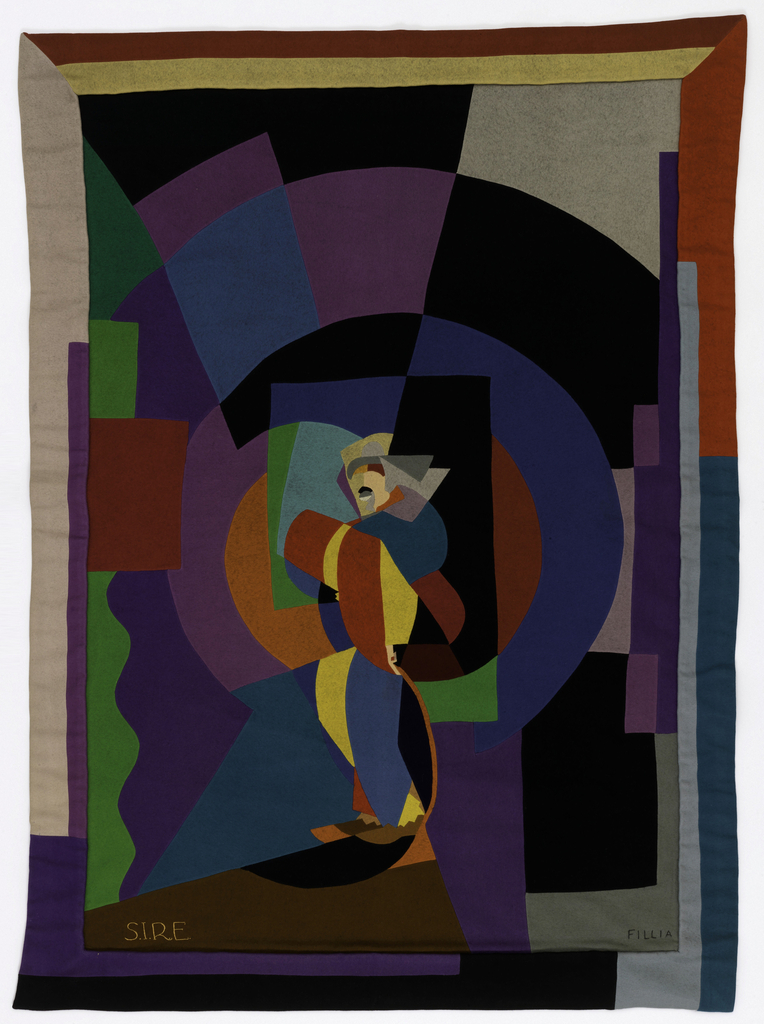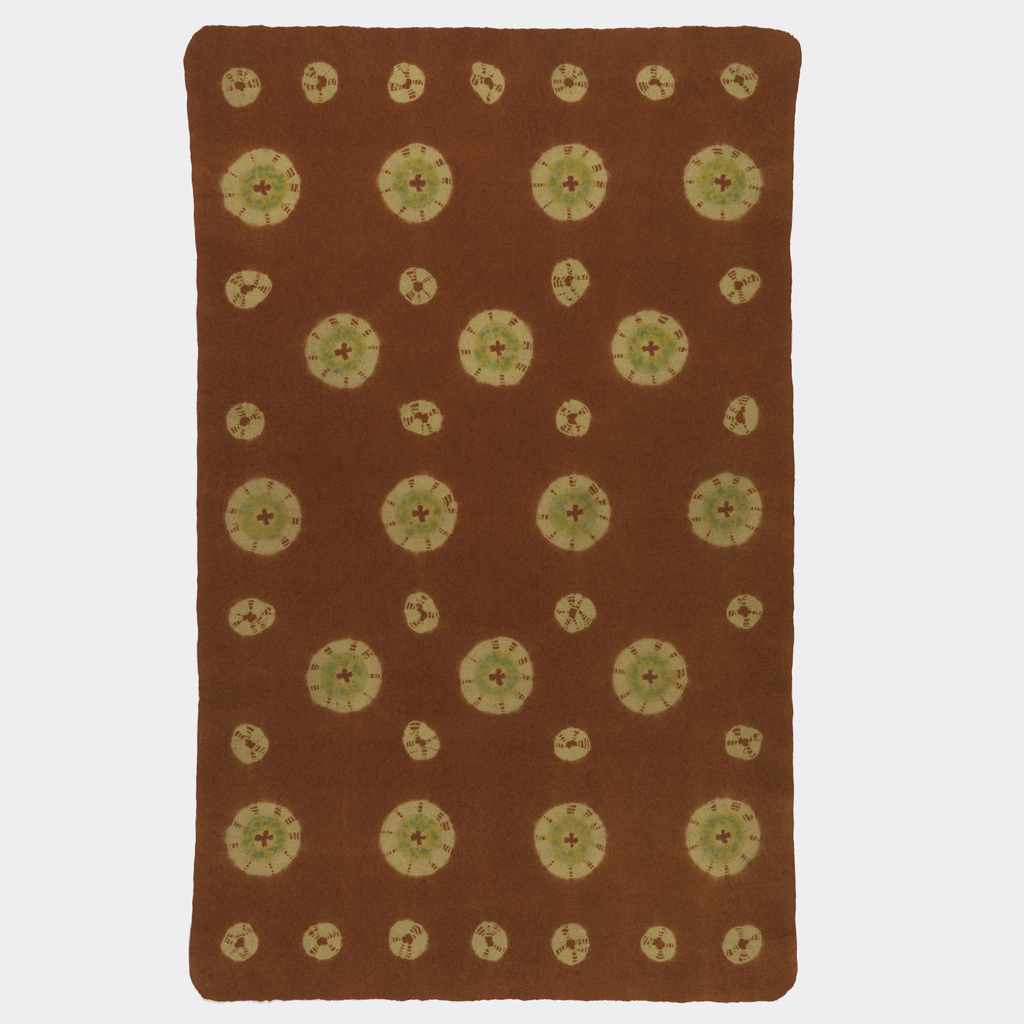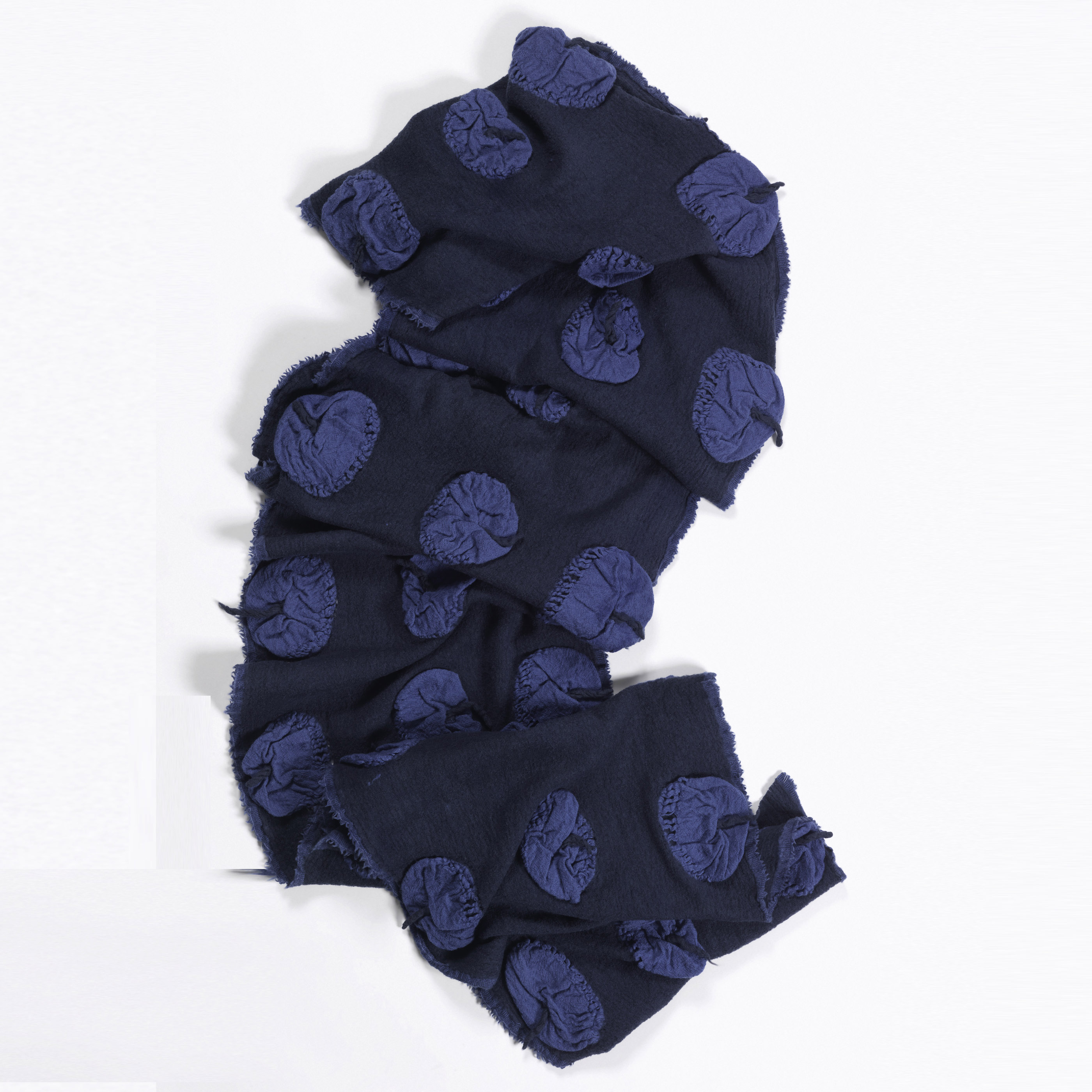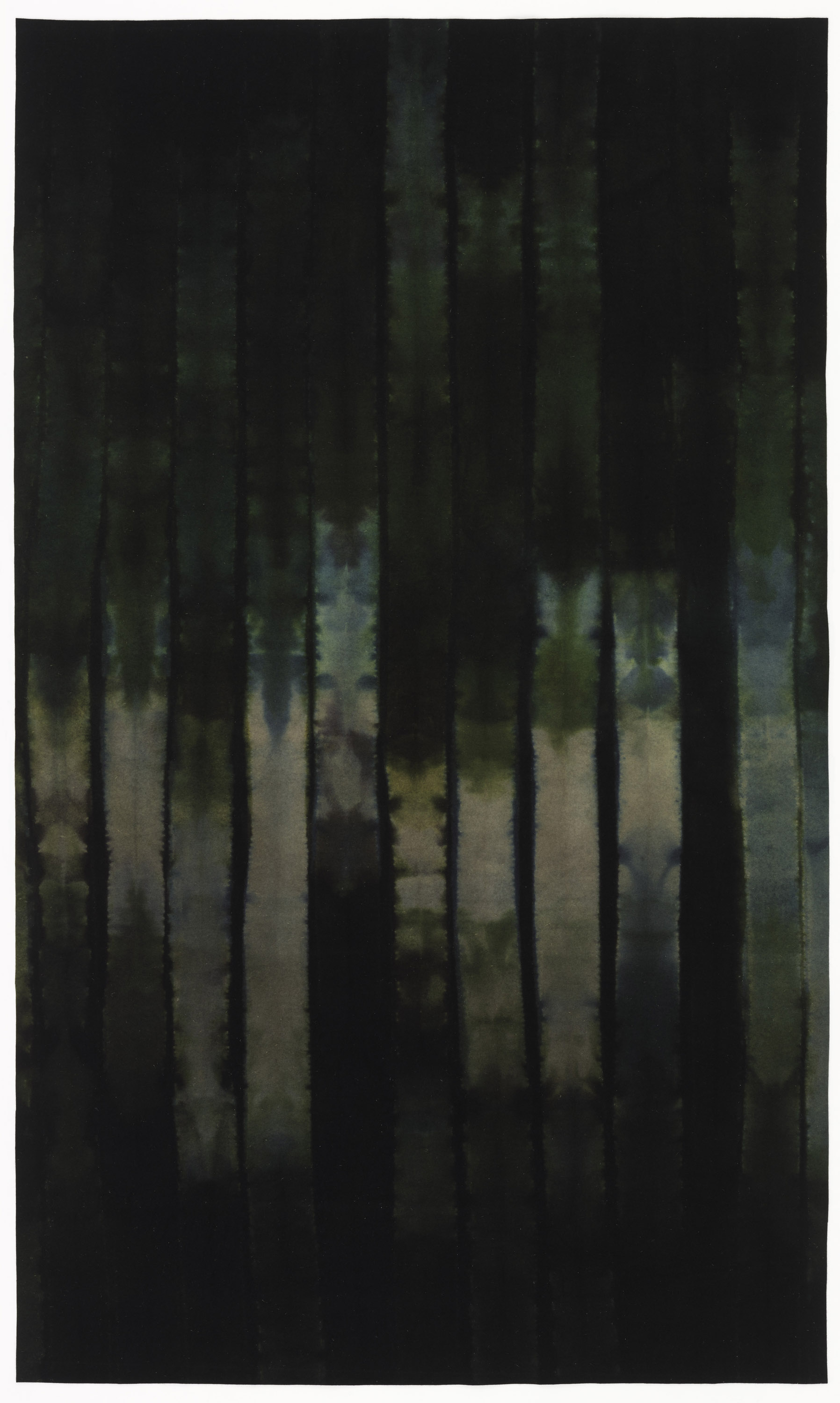SI Alpaca demonstrates Claudy Jongstra’s interests in combining sheerness and opacity in lightweight, translucent structures, and in reintroducing historic dye plants such as madder and weld to the Netherlands. Jongstra planted a research garden specifically devoted to dye plants, and has studied with dye masters to learn historic techniques. SI Alpaca is dyed with walnut....
This object was featured in Object of the Day on Feb. 10, 2015, and has been recently updated with new cataloging information. Fillìa was the adopted name of Italian Futurist artist Luigi Colombo (1904–1936). Fillìa’s association with the Futurists began with the second generation that rose to prominence during the 1920s. This next wave of...
This mosen, a type of rug used in Japanese tea ceremonies, dates from the late 19th century and was made in China for the Japanese market. China was Japan’s main source for wool felt mosen and although they are not rare, usually they show extreme wear. Most of them use the tie-dye technique known as...
Circle Square II, designed by Hideko Takahashi in 1995, exemplifies varied experiments with the shrinking and cutting of a triple-layered cloth resulting in what seems to be a single layer with appliquéd pockets. Takahashi describes her three-layer textiles as a “two-layer cake.” She distinguishes the alternating blue-and-white colored layers that comprise the “cake” by cutting...
In celebration of Women’s History Month, Cooper Hewitt is dedicating select Object of the Day entries to the work of women designers in our collection. In Fluid Green, the Danish textile designer Inge Lindqvist explores her interest in traditional stitched-resist dyeing techniques through the industrial felt medium. Primarily used in Africa, Indonesia, Japan, South America,...
See how needle felting works in this short video. David Morgan from Etsy demonstrates how to make simple felt beads. This string of beads took about 45 minutes to make. About this series: Design Dictionary is a new Cooper Hewitt video series that vividly illustrates a wide variety of creative techniques. Covering everything from glassblowing...
Industrial felt production at Brand Felt of Canada Toronto, Canada, 2008. Produced by Cooper-Hewitt with the cooperation of Brand Felt of Canada Fashioning Felt presents an extraordinary range of felt. From two-dimensional carpets to three-dimensional environments, each work reveals the virtuosity of both the material and the designers. The exhibition and book focus on felt...
Dutch designer Claudy Jongstra recently showcased her tapestries of raw wool and silk here in New York at the United Nations. A participant in Cooper-Hewitt’s 2009 Fashioning Felt exhibition, Claudy has a unique design process that is committed to sustainability, biodiverisity, and the preservation of natural and cultural heritage. Claudy keeps her own sheep, her...
Brooklyn-based design duo Felted Signal Processing creates plush, alien-looking synths and sensors that make noise on contact. Sisters Lara and Sarah Grant combine their skills in art, fashion and engineering to perform their outlandish experiments in “electronic textiles.” There’s a whole catalog of stretchy samplers and woolen warblers on their website, fsp.fm. A felted sensor...
